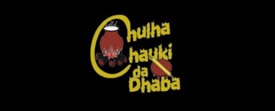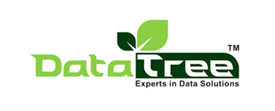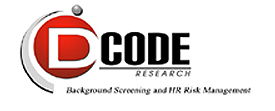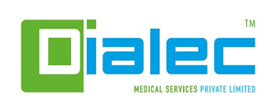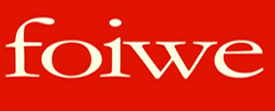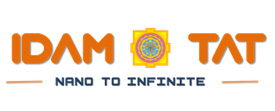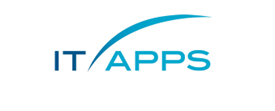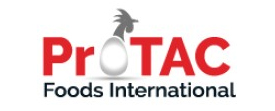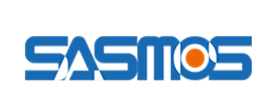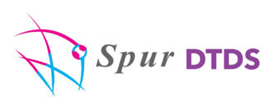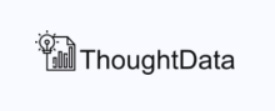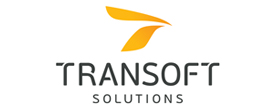Budgeting and Forecasting Services
Planning your budget or forecasts? Dive into the guide below to see how we can help you develop accurate budgeting strategies and reliable financial forecasts to support your business goals.

Budgeting/Forecasting provides the essential financial roadmap that helps your organisation allocate resources carefully, understand economic uncertainties, and achieve your strategic objectives.
What is budgeting and forecasting? Let’s look at them in detail.
Budgeting is the process of creating a detailed plan for how your business will allocate its finances over a specific period of time. It involves calculating income and expenses, setting financial goals, and monitoring performance against those goals.
Cash forecasting, on the other hand, focuses on predicting your future cash inflows and outflows. It helps you forecast potential cash shortages or surpluses, allowing you to make informed decisions about managing your working capital.
At Benchmark, we understand that effective budgeting and cash forecasting are essential for businesses of all sizes. So, we offer extensive solutions to help you understand the complexities of financial planning, allowing you to make strategic decisions that drive growth and profitability.
In the following sections, we'll look deeper into various aspects of budgeting and forecasting, exploring their benefits, types, and the processes involved. We'll also highlight how our expertise can assist you in achieving your financial objectives.
Why do businesses need budgeting and cash forecasting?
Businesses, regardless of size or industry, require a financial benchmark to measure their performance and make informed decisions. Budgeting and forecasting provide this essential groundwork, allowing companies to:
- Establish a clear financial target, ensuring that resources are allocated strategically to achieve both short-term and long-term objectives.
- Compare actual results against the budget, allowing organisations to identify their areas of strength and weakness, enabling timely corrective action.
- Accurate forecasts provide insights into future cash flows, helping businesses make proactive decisions about investments.
- Forecasting helps businesses foresee and lessen potential cash shortages, ensuring your business has sufficient liquidity.
Our Services
At Benchmark, we offer a range of services to improve your financial planning, strategic decision-making, and operational efficiency. Here is an overview of the services we provide for your business.
- Provides you with preparation and review of financial budgets and forecasts using advanced modelling techniques and industry-specific assumptions.
- We develop vital financial models made specific for your business needs, incorporating scenario analysis and stress testing.
- Variance analysis and financial performance tracking to assess deviations from budgets and forecasts, with corrective action recommendations.
- Rolling forecast implementation to ensure the agility and adaptability in your business's financial planning.
- Helps your business with cash flow forecasting and liquidity planning to optimise working capital management and prevent cash shortages.
- Helps your business with budgeting and forecasting automation using leading financial planning and analysis (FP&A) tools and software.
- Integration of cost control mechanisms to align budgets with financial objectives and operational efficiencies.
- Multi-year financial projections to support long-term business strategy and investment planning.
- Industry benchmarking and peer comparison analysis to provide insights into financial performance relative to market standards.
- Revenue and expense forecasting methodologies for accurate financial planning and risk mitigation.
- Budget consolidation and financial reporting solutions for multi-entity businesses and corporate groups.
- Sensitivity analysis and risk assessment models to evaluate financial outcomes under different economic conditions.
- Customised financial dashboards and MIS reports for real-time tracking of budget performance.
- Support in financial decision-making processes for CAPEX planning, cost allocation, and profitability assessments.
- Compliance-driven budget reporting in alignment with financial regulations and corporate governance standards.
Features of Effective Budgeting and Forecasting
Effective budgeting and forecasting are essential for businesses aiming for financial success. Let's look deeper into the specific benefits they offer:
Improved decision making
By providing a clear picture of your financial position, budgeting and forecasting enable informed decisions regarding investments, expansions, and resource allocation, reducing the risk of financial missteps and maximising profitability.
Improved resource allocation
Efficient budgeting helps allocate resources strategically, prioritising areas that drive growth and profitability, avoiding overspending on non-essential items.
Increased control over finances
By setting financial benchmarks and regularly examining performance against them, budgeting and forecasting enable tighter control over finances, identifying and addressing potential issues early.
Builds confidence in stakeholders
Accurate and transparent financial projections build trust with investors, lenders, and stakeholders, helping businesses secure capital and strengthen partnerships.
Types of Budgeting and Forecasting
There are different types of budgeting and forecasting, each serving unique business needs and objectives. Let’s explore the key types:
Budgeting
- Cash Budget: Projects cash inflows and outflows, ensuring sufficient liquidity to meet obligations.
- Operating Budget: Outlines expected revenues and expenses related to core business operations.
- Financial Budget: Projects the overall financial position of the company, including balance sheet and income statement projections.
- Capital Budget: Prioritises long-term investments in fixed assets, such as property, plant, and equipment.
- Static Budget: Remains unchanged regardless of actual activity levels, providing a fixed benchmark for comparison.
- Overhead Budget: Estimates indirect costs, such as rent, utilities, and administrative expenses.
Forecasting
- Cash Flow Forecasting: Predicts future cash inflows and outflows, aiding in cash management and decision-making.
- Financial Forecasting: Projects future financial performance, including revenue, expenses, and profitability.
- Sales Forecasting: Estimates future sales volume and revenue, essential for production planning and resource allocation.
- Profit Forecasting: Predicts future net income, aiding in evaluating the financial viability of business strategies.
4 Methods of Budgeting
Various budgeting methods offer distinct approaches to managing resources. Let's look at four prominent budgeting methods:
1. Traditional Budgeting
This budgeting method relies on historical data and incremental adjustments. It is simple but may be less adaptable to changing circumstances.
2. Zero-Based Budgeting (ZBB)
ZBB starts from a zero base each period, requiring justification for every expense. This promotes cost efficiency and eliminates unnecessary spending.
3. Rolling Budgeting
Rolling budgets are continuously updated throughout the year, providing flexibility and responsiveness to changing conditions.
4. Flexible Budgeting
A flexible budget adjusts to varying activity levels, allowing for more accurate performance evaluation, particularly useful in businesses with changing sales or production volumes.
Why Should You Choose Us?
At Benchmark, we bring expertise, experience, and commitment to delivering budgeting and forecasting solutions that drive your business forward. Here's why you should choose us:
- Our team of FP&A professionals carries extensive experience across diverse sectors.
- We develop customised budget models tailored to your strategic objectives.
- We use advanced analytics and modeling techniques to turn your financial data into actionable insights.
- We provide ongoing support and monitoring throughout the year, not just creating budgets and forecasts.
- We utilise budgeting and forecasting tools, including Excel and specialised software, to streamline your financial planning.
Budgeting/Forecasting Process
A successful budgeting and forecasting process involves collaboration and aligning your financial goals with actionable strategies. Here's how we guide you through the journey:
Step 1: Understanding your needs and objectives
We start by listening to your business aspirations and financial challenges to create a personalised roadmap.
Step 2: Gathering historical financial data and assumptions
We collect and analyse your past financial data, including income statements, balance sheets, and cash flow statements, providing a foundation for forecasts.
Step 3: Developing and implementing budget and forecast models
We use advanced tools to construct customised budget and forecast models, incorporating scenario analysis and sensitivity analysis.
Step 4: Ongoing review and support
We provide continuous support, monitoring actual performance against the budget and conducting variance analysis to recommend corrective actions.
Who Needs Budgeting and Forecasting?
Any business seeking financial stability and growth benefits from budgeting and forecasting. However, certain types and scales of businesses particularly benefit:
Startups and Early-Stage Businesses
These ventures need budgeting and forecasting to secure funding, attract investors, and plan for profitability.
High-Growth Businesses
Businesses undergoing expansion rely on budgeting and forecasting to ensure adequate resources for sustained growth.
Businesses with Seasonal Fluctuations
Companies with cyclical revenue patterns use budgeting and forecasting to manage cash flow effectively throughout the year.
Businesses in Volatile Markets
Companies in industries prone to change benefit from scenario analysis and sensitivity analysis to navigate uncertainties.
Large Enterprises
Even established corporations with complex financial structures benefit from structured budgeting and forecasting to allocate resources efficiently.
Budgeting vs Forecasting
While budgeting and forecasting are connected, they serve distinct purposes. Here are the key differences:
| Feature | Budgeting | Forecasting |
|---|---|---|
| Purpose | Setting financial goals and allocating resources to achieve them. | Predicting future financial outcomes based on trends and data. |
| Timeframe | Focused on a specific period, such as a fiscal year. | Can be short, medium, or long-term. |
| Nature | A planning tool setting a financial roadmap. | An analytical tool assessing potential outcomes. |
| Focus | Internal, emphasising control and resource allocation. | Internal and external, considering market trends. |
| Flexibility | Less flexible, as it is a set plan. | More flexible, allowing adjustments based on new data. |
| Output | A budget outlining expected revenues and expenses. | A forecast predicting financial outcomes. |
Conclusion
Budgeting and forecasting are essential for guiding your business towards sustainable growth. They help anticipate challenges, seize opportunities, and achieve long-term success. At Benchmark, we transform financial data into strategic insights through our comprehensive Budgeting and Cash Forecasting Service.
Get in Touch
Partner with Benchmark to drive your business forward. Contact us today for a collaborative journey toward financial clarity and success.
FAQs
What if my business operates in a highly volatile industry? Can budgeting and forecasting still be effective?
In volatile markets, budgeting and forecasting are crucial. Our expertise in scenario analysis and sensitivity analysis equips you to anticipate various market conditions and make informed decisions.
How often should I update my budget and forecast?
The frequency of updates depends on your industry, business cycle, and the volatility of the market.
Can budgeting and forecasting help my business secure funding from investors or lenders?
Yes, well-prepared budgets and forecasts demonstrate your financial acumen and commitment to responsible management.
How can budgeting and forecasting improve our working capital management?
By anticipating cash inflows and outflows, you can optimise your inventory levels, manage receivables and payables efficiently, and ensure sufficient liquidity to meet operational needs.
What role does technology play in your budgeting and forecasting services?
We use cutting-edge budgeting and forecasting tools, including Excel and specialised software, to streamline processes and enhance accuracy.





